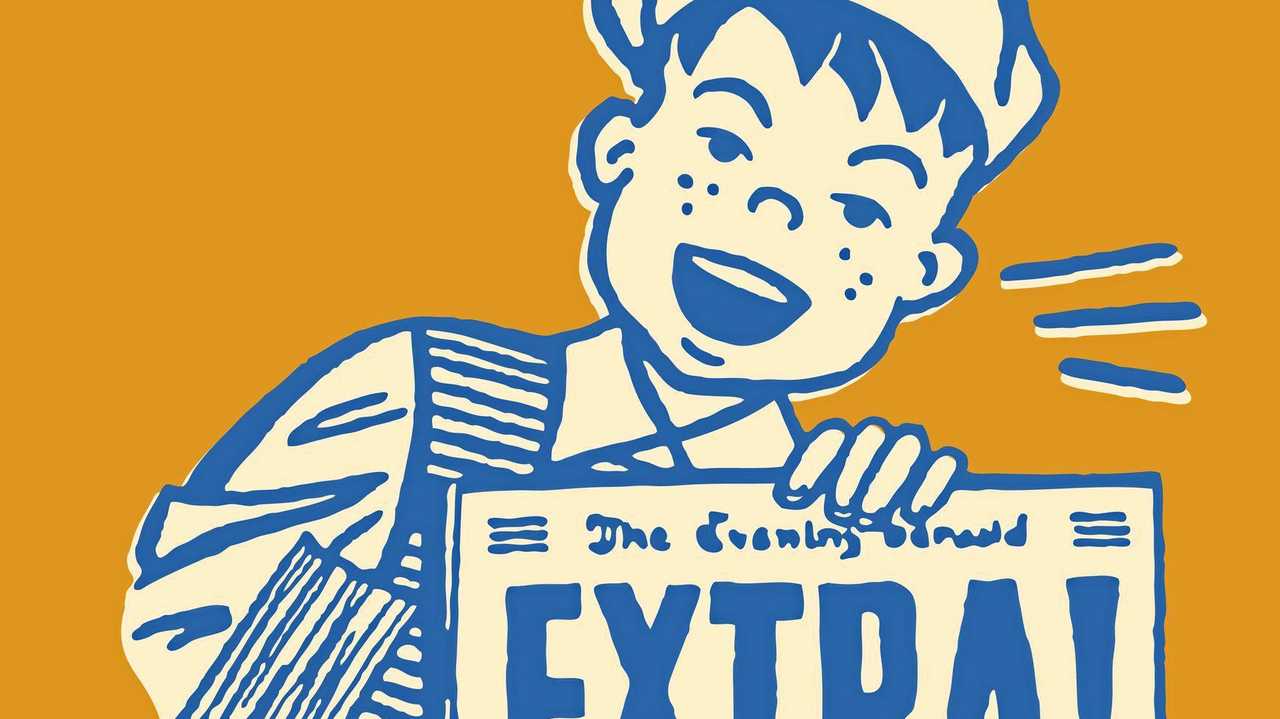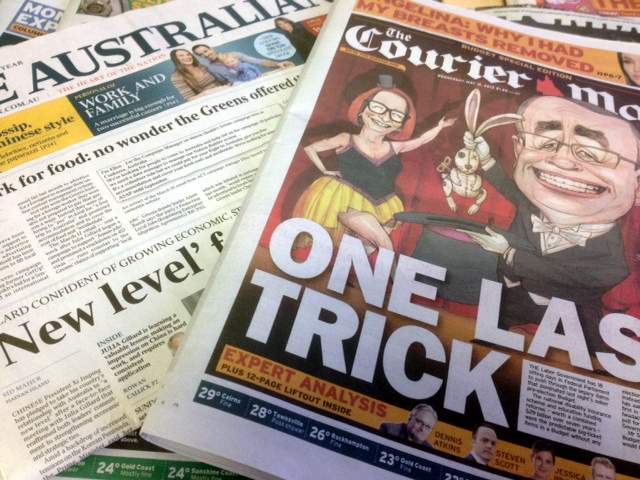Being first with the news has its downside
Traditional media is battling it out online but the road to recovery might be an old one

Mackay
Don't miss out on the headlines from Mackay. Followed categories will be added to My News.
IT'S always fraught with danger writing about your own industry but hey this column space isn't averse to sticking its head up occasionally in an attempt to provoke thought and highlight inadequacies, so let's just hope the bosses see it that way.
Those clunky old beasts that were the traditional media platforms you grew up with, newspapers, radio and television - come on, you remember - are still gnashing away, the climate they once operated supremely in now unrecognisable.
But if you can't beat 'em, at least keep nipping at the heels until you can reinvent yourself for the new millennium and, at the moment, the traditional media is definitely in the thick of doing that.
But first, some reflection on the good ol' days.
It's hard to fathom how differently 9/11 would have unfolded had Twitter been around. Or if Monica Lewinsky had to deal with being slut-shamed on Facebook as well as the front page.
Now things happen so quickly, it's almost a requirement to break the news before it even happens. Fox News discovered the consequences of jumping that gun literally when they reported that a member of Congress who was shot in the head had died. She didn't, but they wanted to be first and pre-empting what they considered her inevitable demise, for want of a better term, backfired mightily.
They were crucified by other media outlets but people still tune in to Fox anyhow.
It's a bit like those gossip magazines that doctor up photos of famous people that haven't seen each other in years. They make up stories on info provided by a "close source'"or "their inner circle'" to reveal that they're back together again and pregnant for the eighth time despite having never given birth, ever.
Being abducted by an alien is positively fathomable up against these cyclic doses of trite, but despite knowing most of the content is questionable, people must still be buying it in every sense of the term.

The pressure to get the scoop or exclusive also means the boundaries of good taste now sit in the lower intestinal tract somewhere. Texting a child for comment while they're trapped in the middle of the mass shooting is becoming common practice in the US. But Australia isn't immune to this practice.
Mike Willesee was criticised for using an old-school landline to call the young hostages during the Cangai siege back in 1990s (later parodied by the satire Frontline) but what he was really doing was being prophetic.
The Daily Telegraph is in the thick of a potentially expensive lawsuit because it ran a piece on Geoffrey Rush that outed him as groping a female actor during the production of King Lear, the headline opportunity (King Leer) seemingly too good to pass up. It was midst #metoo revelations where Hollywood males were dropping like (their) flies, so waiting for the concrete to set isn't an option when you're on a treadmill of tawdriness.
But you've got to give the customer what it wants, right? Even if they turn around and criticise (or sue) you later for it.
Perhaps the most famous case was of the late Princess Diana. People couldn't get enough of this royal enigma.
The media made a fortune off her back thanks to the public's insatiable desire to know every move she made. Ultimately this love/hate relationship cost her her life.
The world-wide grieving process that followed meant someone was to blame so between the evil paparazzi and her stone-faced Majesty at the time, the people had their sacrificial lambs in their sights. This was well before social media got its hooks into us.
This kind of angry mob mentality is what drives the media's dominant platform today, that of the social ilk.
Even young people can't get enough of the "news", real and fake, which is good in some ways because it means they're engaged with what's going on beyond their bedrooms, but they also don't have to leave those rooms to discover who's to blame for everything this week.
Navigating what's real and what's not is the latest challenge for traditional media to overcome.
It highlights the power wielded by these platforms and companies devoted to producing it. You can no longer dismiss it as the consequences are all-too-real. Like the 45th President of the United States.
The word media has never had a broader meaning than it does today. Everyone can get into the act now, hence the use of the term "social".
But with this unregulated version comes a huge number of problems, not just for traditional media outlets in producing content within it, but for everyone who engages with it.
It's kind of amusing to see traditional media going back to its roots and investing in quality journalism in order to stand out in the sea of clickbait.
After having jumped in head-first and whaled around in the muck for a good few years with not much to show for it in paid subscriptions - and with Facebook being on the nose - being seen as a trusted news source has never been so vital.
Let's just hope people agree and are willing to pay for it.
Originally published as Being first with the news has its downside






